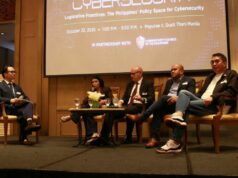By Romsanne R. Ortiguero
Nowadays, most companies are venturing into businesses not for profit alone. They become conscious of their social, economic, and environmental impact; and at the same time, they create positive change to the communities where they are present through various projects under their corporate social responsibility (CSR) or to some, corporate sustainability programs.
World Bank defines CSR as the commitment of business to contribute to sustainable economic development — working with employees, their families, the local community, and society at large to improve the quality of life, in ways that are both good for business and for development.
“The contemporary CSR agenda is founded in a recognition that businesses are part of society, and they have the potential to make a positive contribution to societal goals and aspirations,” World Bank further stated.
Once treated only as an optional charitable initiatives handed out to communities, these programs are now considered as “best practice,” one of the core functions of a business, and as a way to creatively and effectively help solve social problems. Hand in hand with the public sector, the private sector can actively spur change towards the country’s development through these programs. Likewise, it can also bring forth a long-term positive impact on the company’s value because of the trust it inspires to the public.
According to Harvard Business Review (HBR), the main goal of CSR is to align a company’s social and environmental activities with its business purpose and values. If in doing so, CSR activities can benefit the company by enhancing its reputation, and contributing to business results, among others. And while companies would want to commit to CSR programs because it can do good for the company’s reputation, HBR said that more importantly, the general public is clamoring for companies to enact good, fair business practices.
In a separate report by HBR in January 2018, it showed that more companies are starting to care more about CSR. HBR said that among the largest 250 companies in the world, 92% produced a CSR report in 2015, informing shareholders and the public about the firm’s activities, which indicated a 64% increase in having such a report in 2005.
Not only the community engaged in a company’s CSR and sustainability programs benefits from the initiative. The report by HBR also said that the company’s employees also mutually gain from such programs.
“Companies are also finding that CSR efforts — such as sustainability initiatives, corporate foundations, employee volunteer programs, and donations to charity — can be important tools for attracting and motivating employees. Research has shown that various forms of prosocial incentives (workers get rewarded not with money, but with the firm engaging in some act to benefit society) indeed increase productivity in simple and complex tasks, increase retention, and even lower employees’ wage demands,” the report stated.
In the Philippines, it is said that the concept of mutual aid is common, as exemplified in the spirit of bayanihan or brotherhood, where members of the community lend assistance to each other in times of need. Similarly, with the goal of contributing to the well-being of a community in need, it is often common than for companies not to implement sustainability or CSR programs.
Recognizing the importance of social responsibility, local mining company Apex Mining Co., Inc. (AMCI) — with a history of mining operations since the 1930s — has since been doing various community development initiatives. Its efforts in engaging with the communities where the company is located is further solidified with the passage of R.A. 7942 or the Philippine Mining Act of 1995, which mandates all mining companies to prepare and implement its Social Development and Management Program (SDMP) to its host and neighboring communities.
AMCI has flagship Social Development and Management Programs (SDMP) named H.E.L.P.S., which aims to assist the social, economic, and environmental development of AMCI’s host and neighboring communities. HELPS stands for Health & Medical Assistance Program; Educational Program; Livelihood Program; Public Infrastructure Program; and Socio-Cultural & Religious Assistance Program. The company spent P46.7 million in 2017 and P38 million in 2016 for its social and development programs.
AMCI considers the company’s support to education as its most significant CSR program. Through its educational programs, which are geared towards the improvement of the quality of education and skills enhancement, the company now employs residents from the locality to fill up technical and non-technical positions.
“AMCI’s commitment to the development and improvement of the local communities showcases the company’s advocacy to pursue its SDMP seriously. Foremost in its corporate objectives are (1) ensure profitability to sustain its operations and support its shareholders, (2) maintain the safety and wellbeing of all its employees, and (3) provide full support to sustainable economic development of its hosts and neighboring communities,” the company told BusinessWorld in an e-mail.
AMCI considers itself not just as a responsible mining company but also as a catalyst and partner in community development. The continuous implementation of the company’s social programs enabled it to be trusted by the communities they are working in.
“The involvement, cooperation, partnership, and active participation of the community stakeholders in all aspects of the company’s operations are essential to gaining the trust and confidence of the people. The more the people are involved in the implementation of programs, projects and/or activities (PPAs), the more they can attain the ‘sense of ownership’ over the particular PPAs,” AMCI said.
Moving forward, AMCI stated that it will continue to implement the PPAs that are programmed under its SDMP in consultation with the stakeholders of the company’s host and neighboring communities. Moreover, it will continue funding its SDMP to ensure its timely implementation.



